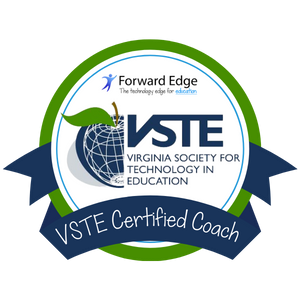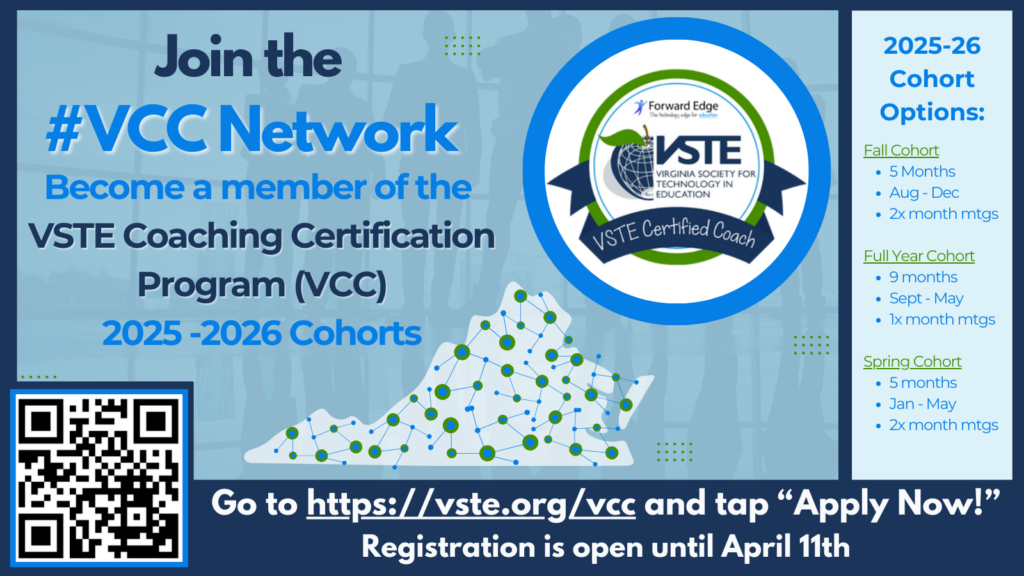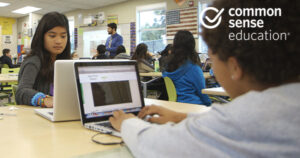VSTE Board Elections Opening on April 9, 2024
You are invited to nominate yourself or a colleague to be considered for election to the Virginia Society for Technology in Education (VSTE) Board of Directors, for the 2025-2028 Board term (three years). This is an opportunity to become involved in the key decision-making group for the Virginia Society for Technology in Education. The online election, which will be held in April 2025, is for four seats on the Board of Directors for Region 2, 5, and an At Large Position.
 Learn More About the VSTE Board of Directors
Learn More About the VSTE Board of Directors
Nominations
VSTE members may nominate themselves or a colleague for a three year term who belong to VSTE and who live or work in Region 2 (Southwest) or Region 5 (North Central) or At Large (Any Region). This is an opportunity to become involved in the key decision-making group for the Virginia Society for Technology in Education. If you are interested and meet these requirements, please login to members.VSTE.com and complete the electronic form no later than April 7, 2025. If you are nominating someone else for the position, please be sure they are aware in advance and properly secure responses to the nomination form prompts.
Nominations open on March 17 and close April 7. You must be a VSTE member as of December 31, 2024 to nominate, to be nominated, and to participate in the online election. Details for a complimentary membership can always be found at VSTE’s website.
Voting
Voting will open on April 14, 2025 and close April 28th 2025. You must be a VSTE member as of December 31, 2024 to be eligible to vote. New board members will be announced May 1.







